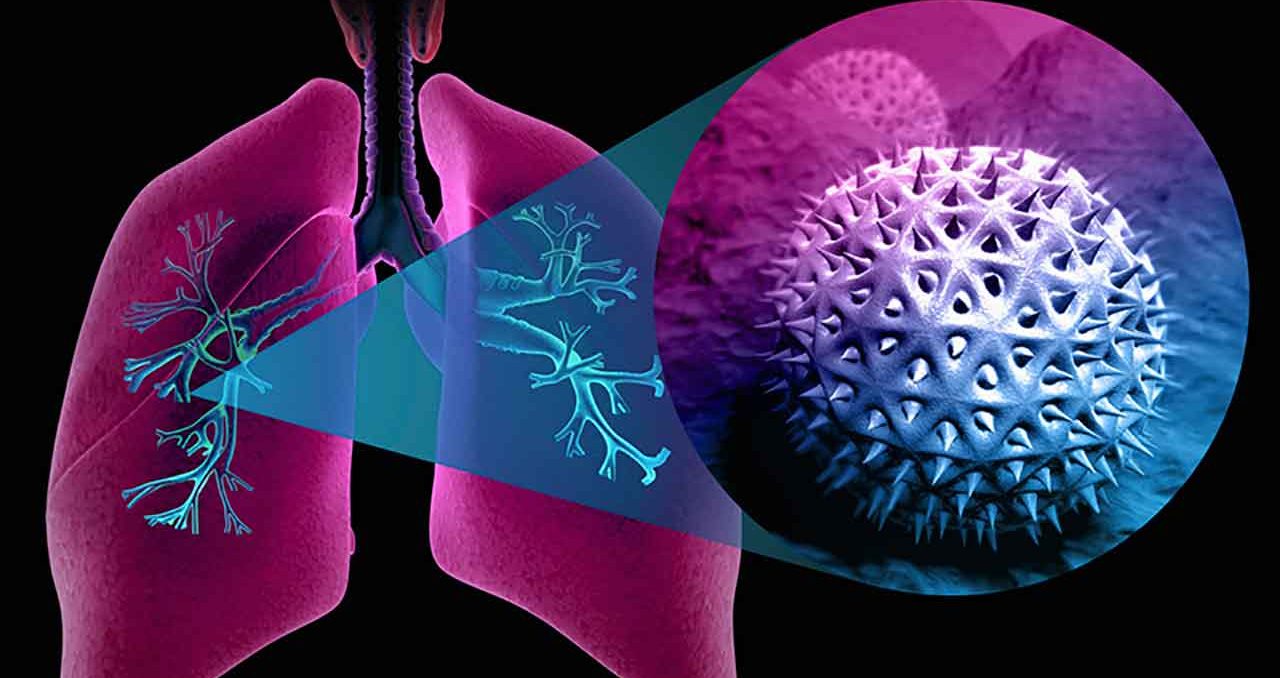How to Fight Asthma When You Have Allergies

Don’t let pollen, dust, and other allergens set off a serious asthma attack. Know how to fight asthma flare-ups when you have allergies. Learn more here.
Anyone who’s had an asthma attack knows how frightening it can be. Your chest tightens, your breathing constricts, and you wheeze and gasp for air until your inhaler goes to work and opens your airways. Pollen, pet dander, mold, and other allergens can set off asthma symptoms and make flare-ups even more frequent.
More than 26 million Americans with asthma, about 60 percent also have allergies (sometimes called allergic asthma, or “asthmergies” for short). If you’re among those with both conditions, exposure to your allergic trigger causes your immune system to produce an antibody called immunoglobulin E (IgE). IgE makes your body release chemicals that constrict your airways, leading to an asthma attack. Every time you’re exposed to the allergen, the same sequence of events occurs.
Asthma sufferers who haven’t been diagnosed with allergies can be caught off-guard at the start of allergy season.
“The high pollen days can come as a shock to someone who hasn’t had a history of allergies and asthma and can even surprise experienced asthma patients who’ve suddenly developed allergies,” said Pamela Georgeson, DO, a board-certified allergist and immunologist in Michigan.
YOU MIGHT ALSO LIKE: What Is Asthma?
Preventing asthma flares
The first step to avoiding asthma attacks is to know your triggers. See an allergist for testing to find out whether dust, pet dander, mold, or another allergen is causing your symptoms. Irritants like cleaning chemicals, pollution, strong scents, and tobacco smoke can also be triggers.
Avoid contact with anything that makes you wheeze. If pollen bothers you, close your windows and doors and keep your air conditioner on. Stay indoors during peak pollen times, which are usually early in the day (although pollen is present all day). When you have to go outdoors, take a shower and wipe down your pets when you come back inside.
Check your peak flow often. Exposure to allergens may decrease your lung function before you notice asthma symptoms.
Also minimize allergy sources indoors. Clean carpets, upholstery, drapes, and other areas where dust collects with a high-efficiency particulate air (HEPA)-filtered vacuum at least once a week.
Keep the humidity level in your home above 50 percent to prevent mold growth. Make sure no one smokes inside the house. Avoid perfumes and scented candles or sprays.
When you clean, keep the room well-ventilated to avoid breathing in fumes. If you’re too attached to your pets to part with them, at least keep them out of your bedrooms.
Treatments that target asthma and allergies
Your allergist or asthma specialist can prescribe medicines that prevent both allergies and asthma attacks. The drug omalizumab (Xolair) blocks IgE to stop the allergic response that sets off asthma symptoms. Leukotriene modifiers such as montelukast (Singulair), zafirlukast (Accolate), and zileuton (Zyflo) control chemicals your body releases when you breathe in an allergen, preventing both allergies and the asthma attacks they trigger.
Finally, you can see your allergist for allergy shots, which gradually acclimate your body to the allergen, so you no longer have a reaction when exposed to it.
When to get help
You may be able to control most allergy attacks on your own with a quick-acting rescue inhaler. But sometimes symptoms are serious enough to warrant immediate medical attention.
Call 911 or go to an emergency room if you’re so out of breath that you can’t talk. Also get help if you can’t stop wheezing, your lips or fingernails turn blue, it hurts your chest to breathe, or you’re getting low readings on your peak flow meter.
YOU MIGHT ALSO LIKE: 11 Things That Can Make Allergies Worse
Updated:
September 06, 2023
Reviewed By:
Christopher Nystuen, MD, MBA, and Janet O’Dell, RN